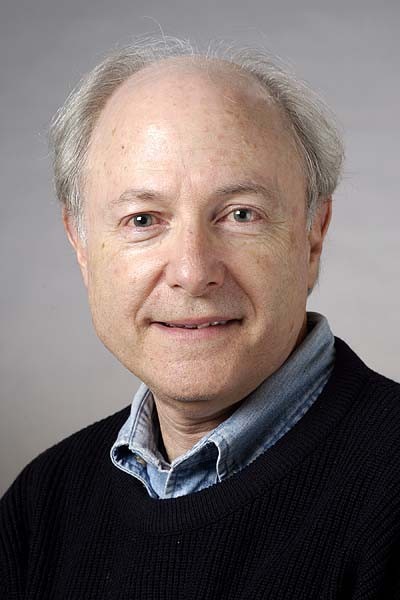GVSU to host Holocaust expert to read play on genocide

GVL / Courtesy – Michael Forster Rothbart / University of Wisconsin – Madison
Nov 6, 2017
The Department of English at Grand Valley State University will host Robert Skloot Wednesday, Nov. 8, as he participates in and directs a staged reading of his play “If the Whole Body Dies: Raphael Lemkin and the Treaty Against Genocide.”
The staged reading, which will take place at 3 p.m. in the Mary Idema Pew Library Learning and Information Commons, will demonstrate that one person truly can make a difference, no matter how big the issue.
Skloot is a professor emeritus at the University of Wisconsin-Madison and is an expert in theater and the Holocaust. His play combines his two areas of expertise to tell a story about Raphael Lemkin and his political journey as an advocate in eliminating genocide.
Richard Hiskes, a political science and human rights professor at GVSU, said the focus of the play, Lemkin, was personally affected by the Nazi regime during World War II. He was essential in the prevention and punishment of those who practiced genocide.
“Raphael Lemkin was working for the Carnegie Foundation during WWII,” Hiskes said. “He was a Polish lawyer whose parents had been killed by Nazis. He coined the word ‘genocide’ to describe, as Winston Churchill had said early in the war, ‘the crime the Nazis are committing for which there is no name.’
“He also worked to draft what became the UN ‘Convention (on the) Prevention and the Punishment of (the Crime of) Genocide,’ adopted in 1948 on the day before the Universal Declaration of Human Rights was adopted. The ‘Genocide Convention’ would have never happened without him, in my view.”
Professor Rob Franciosi, an English professor at GVSU and the organizer for Skloot’s visit, said Lemkin did just this through persistence and determination.
“Raphael Lemkin did not hold any official position, nor did he have major institutional backing, yet he persisted in his quest for the international community to recognize that some crimes are the business of all nations,” Franciosi said.
This is not the first time GVSU has hosted an event that has to do with the Holocaust. Franciosi said this staged reading not only keeps on trend with that pattern, but it also coincides with the human rights minor, something that has only been recently established as a minor option at GVSU.
“Presenting ‘If the Whole Body Dies’ not only is consistent with that practice but also fits well with the new human rights minor that has been established,” Franciosi said. “More importantly, the shadow of genocide, what Samantha Power (former U.S. ambassador to the United Nations) called ‘a problem from hell,’ looms over too many places in the world, as recent reports from Myanmar prove.”
Franciosi and a group of students will join Skloot in the staged reading. With no costumes or acting gestures, it is up to the readers to portray the characters to the best of their ability.
The Joseph Stevens Freedom Endowment, which was founded in 1990 by GVSU, is funding Robert Skloot’s visit, as well as other lectures of this type, to make this sort of learning opportunity possible for students, faculty and staff.
“To honor its namesake, who for years shared with Grand Valley students his experiences during World War II, the endowment funds lectures to promote the understanding of issues related to human freedom, including a special focus on the history and consequences of the Holocaust,” Franciosi said.
For more information about this staged reading, visit www.gvsu.edu/events/robert-skloot-if-the-whole-body-dies-staged.






















